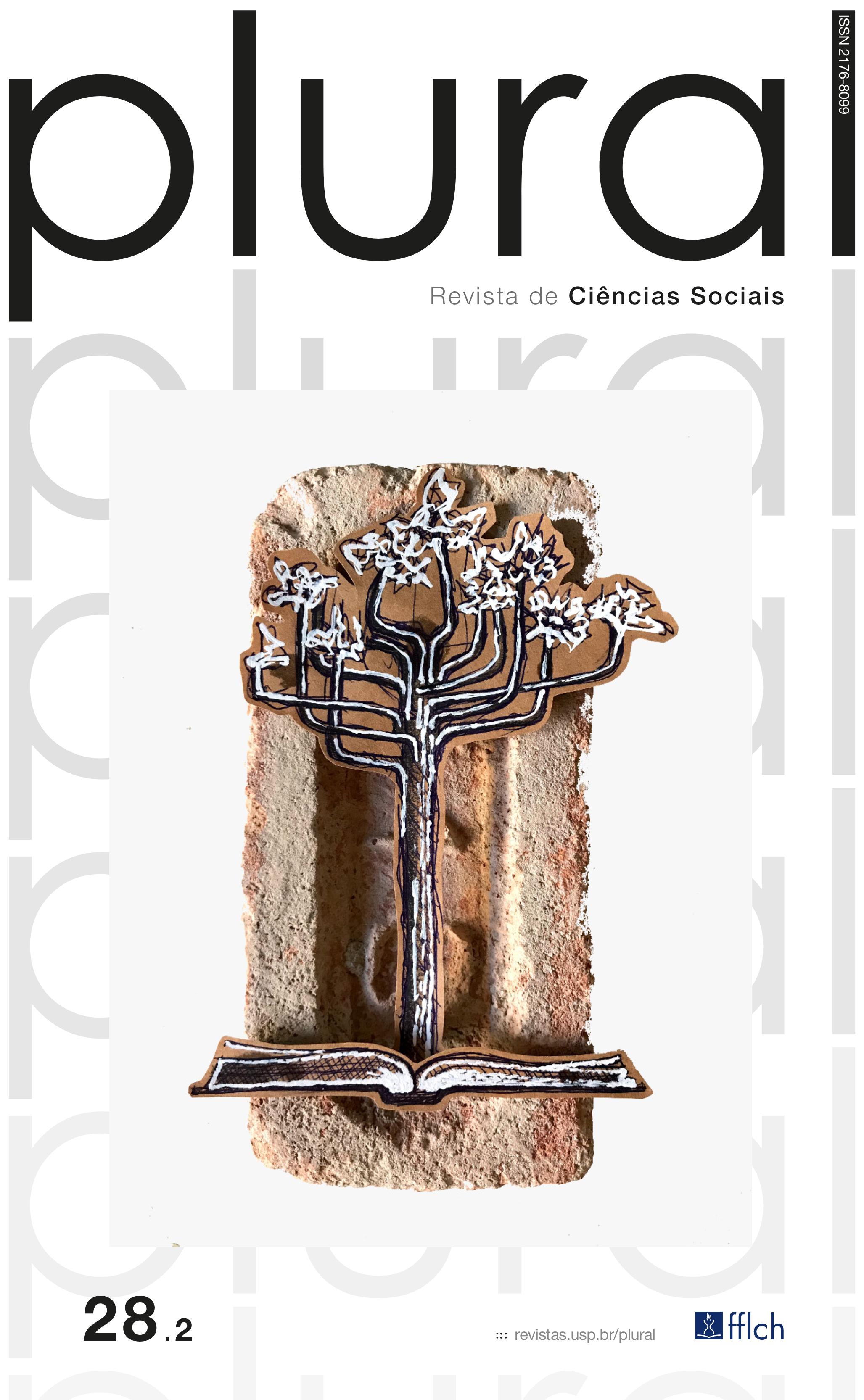Women on Lefebvre Towards a re-reading of urban space from Marxists Feminisms
DOI:
https://doi.org/10.11606/issn.2176-8099.pcso.2021.186026Keywords:
FEMINISM, MARXISM, SOCIAL REPRODUCTION, CITY, URBAN SPACEAbstract
This article proposes to revisit the social space conceptualized in the work of the French sociologist Henri Lefebvre from a unitary vision of capitalist exploitation and the oppression of women. For this, a bibliographic review is carried out to build bridges between one of the most significant notions of the struggles for economic, social and cultural rights in Latin America and a theory that, having timidly started its steps towards the end of the 70s, reborns nowadays in the face of theoretical proposals that exclude class from gender analysis.
It runs through Federici's workerism to rescue her contributions in relation to the conformation of cities during the capitalist transition and the process of expulsion and social impoverishment of women, while the Theory of Social Reproduction is preferred to achieve an analytical framework that allows to account for the contemporary urban phenomenon and the place of women in it.
It is concluded that Lefebvre's reasoning, in addition to falling into typical preconceptions of his time in relation to the demands of women, uses a very broad concept of social reproduction that makes him lose sight of its importance for capital in equality with production of goods. The complementation of the Lefebvrian theory with the contributions of Marxist Feminisms, then, facilitates the understanding of the historical place of women as the first dispossessed of the urban and their current role in the deployment of collective strategies of social reproduction that mean an appropriation of abstract space that gains ground both from its historical loss of status and from the contemporary logic of capital.
Downloads
References
AGUIRREZABALA, Marcela. (2021). “En defensa de la Casa: Mujeres y política entre la ruptura del orden colonial y la independencia”. En: Tejerina, M. V. & Cantera, C. S. (eds.), Implicar al otro. Espacio, territorio y poder entre la colonia y las Provincias Unidas del Río de la Plata. Bahía Blanca:EDIUNS, p.11-44.
ALADRO, Almendra (2020). “El acceso al derecho a la ciudad de las mujeres”. II Coloquio Internacional de Conflictos Urbanos. Jerez de la Frontera:UCA.
ARRUZZA, Cinzia (2013). Dangerous Liaisons: The marriages and divorces of Marxism and Feminism.Exeter:Resistance Books.
ARRUZZA, Cinzia; BHATTACHARYA, Tithi (2020). “Teoría de la Reproducción social: Elementos fundamentales para un feminismo marxista”. Archivos de historia del movimiento obrero y de la izquierda, v.8, n. 16, p.37-69.
BARCOS, María Fernanda (2012). “El influjo del Derecho Indiano en la legislación sobre ejidos de la Provincia de Buenos Aires, 1782-1870”. Revista de Indias, v. 72, n. 256, p. 687-716.
BARRANCOS, Dora. (1994). “Entre la celebración y el escarnio: mujeres contestatarias (1890-1900)”. In: FLETCHER, L. (Org.). Mujeres y culturas en la Argentina del siglo XIX. Buenos Aires: Feminaria.
BARRANCOS, Dora (2000). “Inferioridad jurídica y encierro doméstico”. In:GIL LOZANO, F.; PITA, V.;INI, M. G. (orgs.). Historia de las Mujeres en la Argentina. Tomo I. Buenos Aires:Taurus.
BARRANCOS, Dora (2007).Mujeres en la sociedad argentina: Una historia de cinco siglos, Sudamericana:Buenos Aires.
BHATTACHARYA, Tithi (2017). “Introduction: Mapping Social Reproduction Theory. In: BHATTACHARYA, Tithi (ed.).Social Reproduction Theory: Remapping Class, Recentering Oppression. London: Pluto Press, p.1-20.
BUTLER, Chris (2012). Spatial politics, Everyday Life and the Right to the City. Nueva York:Routledge.
CANESTRARO, María Laura (2016). “Sobre el derecho a la ciudad y el acceso al suelo urbano: Reflexiones a partir de intervenciones estatales recientes (Mar del Plata, 2012-2015)”. Estudios Socioterritoriales. Revista de Geografía, n. 20, p. 57-74.
DAVIS, Angela (1981). Women, Race, and Class. New York: Vintage Books.
FALÚ, Ana (2014). “El derecho de las mujeres a la ciudad: Espacios públicos sin discriminaciones y violencias”.Revista Vivienda y Ciudad, v. 1, p. 10-28.
FALÚ, Ana (2016). “La omisión de género en el pensamiento de las ciudades”. In: BORJA, Jordi, CARRIÓN, Fernando y CORTI, Marcelo (eds.). Ciudades para cambiar la vida: Una respuesta Hábitat III. Buenos Aires: Café de las Ciudades, p. 159-179.
FAVELUKES, G. (2011). Figuras y paradigmas. Las formas de Buenos Aires (1740-1870). Anales del Instituto de Arte Americano e Investigaciones Estéticas “Mario J. Buschiazzo”, vol.41, núm.1, s/n.
FEDERICI, Silvia (2010). Calibán y la bruja. Madrid:Traficantes de Sueños.
FEDERICI, Silvia (2018). El patriarcado del salario: Críticas feministas al marxismo. Madrid:Traficantes de Sueños.
FERGUSON, Susan (2020). Women and Work: Feminism, Labour and Social Reproduction. London: Pluto Press.
FERGUSON, Susan; MC NALLY, David (2013). “Capital, Labour Power and Gender-Relations: Introduction to the Historical Materialism Edition of Marxism and the Oppression of Women”.In: VOGEL, Lise. Marxism and the Oppression of Women: Towards a Unitary Theory. Leiden:Brill, p.XVII-XL.
FRADKIN, Raúl (2012). Historia de la provincia de Buenos Aires. Gonnet:EDHASA-UNIPE.
FRASER, Nancy (2017). “Crisis of Care? On the Social Reproductive Contradictions of Contemporary Capitalism”. In: BHATTACHARYA, Tithi (ed.). Social Reproduction Theory: Remapping Class, Recentering Oppression. London: Pluto Press, p.21-36.
GRIMSON, Alehandro (2006). “Nuevas xenofobias, nuevas políticas étnicas en Argentina”. In:GRIMSON, A.;JELIN, E. Migraciones regionales hacia la Argentina: Diferencia, desigualdad y derechos. Buenos Aires:Prometeo, p. 69-97.
JIRÓN, Paola (2017). “Planificación urbana y de trasporte a partir de relaciones de interdependencia y movilidad del cuidado”. In: NIEVES RICO, María & SEGOVIA, Olga (eds.). ¿Quién cuida en la ciudad?Aportes para políticas urbanas de igualdad. Santiago de Chile:CEPAL, p. 405-431.
JIRÓN, Paola, CARRASCO, Juan-Antonio & REBOLLEDO, Marcela (2020). “Observing gendered interdependent mobility barriers using an ethnographic and time use approach”. In: Transportation Research, n 140, p.204-214.
LEFEBVRE, Henri (1961). Introducción al marxismo. Buenos Aires:EUDEBA.
LEFEBVRE, Henri. (1976). Tiempos equívocos. Barcelona:Kairós.
LEFEBVRE, Henri (1978). De lo rural a lo urbano. Barcelona:Cultura Libre.
LEFEBVRE, Henri (2013 [1974]). La producción del espacio. Madrid:Capitán Swing Libros.
LEFEBVRE, Henri (2017 [1968]). El derecho a la ciudad. Madrid:Capitán Swing Libros.
LUPARELLO, Velia; QUIROGA, Manuel (2019). “Sobre las relaciones entre feminismo y marxismo: un aporte desde la Teoría de la Reproducción Social”. In: CÓRDOBA, Liliana; LA SERNA, Carlos; CRISTINI, Romina (orgs.).I Congreso Nacional de Ciencias Sociales: Las ciencias sociales a 100 años de la Reforma Universitaria, Córdoba, p.432-441.
MARTÍNEZ, Mónica (2013). “Los pueblos del Desierto: Conquista, urbanización y colonización del territorio de La Pampa, Argentina (1879-1930)”. In: Registros. Revista de Investigación Histórica, n. 10, p. 38-59.
SCURO, Laura & VACA-TRIGO, Iliana (2017). “La distribución del tiempo en el análisis de las desigualdades de las ciudades de América Latina”. In: NIEVES RICO, María & SEGOVIA, Olga (eds.). ¿Quién cuida en la ciudad?Aportes para políticas urbanas de igualdad. Santiago de Chile:CEPAL, p. 117-148.
SKEGGS, Beverly (2019). Mujeres respetables: Clase y género en los sectores populares. Los Polvorines:Universidad Nacional de General Sarmiento.
SMITH, Doroty (2005). Institutional ethnography: A sociology for people. Toronto: Rowman Altamira.
VACCARONI, Agustina (2020). “La policía y el proceso de territorialización de la ciudad de Buenos Aires: Medio siglo de proyectos, 1782-1824”. Quinto Sol, v.24, n.1, p. 1-22.
VARELA, Paula (2019). “¿Existe un feminismo socialista en la actualidad? Apuntes sobre el movimiento de mujeres, la clase trabajadora y el marxismo hoy”. Revista THEOMAI, n. 39, p.4-20.
VASALLO, Jaqueline (2014).“Judicializar el escándalo: disputas femeninas y control social. Cabildo de Córdoba de Tucumán, 1782-2010”. Mouseion, n.18, p. 115-131.
VOGEL, Lise (2013 [1983]). Marxism and the Oppression of Women: Towards a Unitary Theory. Leiden:Brill.
ZAMORA, Romina (2010). “Lo doméstico y lo público. Los espacios de sociabilidad de la ciudad de San Miguel de Tucumán a fines del siglo XVIII y comienzos del XIX”. Nuevo Mundo, Nuevos Mundos, n. 10, p. s/n.
Downloads
Published
Issue
Section
License
Copyright (c) 2021 Política de direitos compartilhados

This work is licensed under a Creative Commons Attribution-NonCommercial-ShareAlike 4.0 International License.
Ao submeter seu trabalho à Plural, o autor concorda que: o envio de originais à revista implica autorização para publicação e divulgação, ficando acordado que não serão pagos direitos autorais de nenhuma espécie. Uma vez publicados os textos, a Plural se reserva todos os direitos autorais, inclusive os de tradução, permitindo sua posterior reprodução como transcrição e com devida citação de fonte. O conteúdo do periódico será disponibilizado com licença livre, Creative Commons - Atribuição NãoComercial- CompartilhaIgual –, o que quer dizer que os artigos podem ser adaptados, copiados e distribuídos, desde que o autor seja citado, que não se faça uso comercial da obra em questão e que sejam distribuídos sob a mesma licença (ver: http://www.creativecommons.org.br/).







